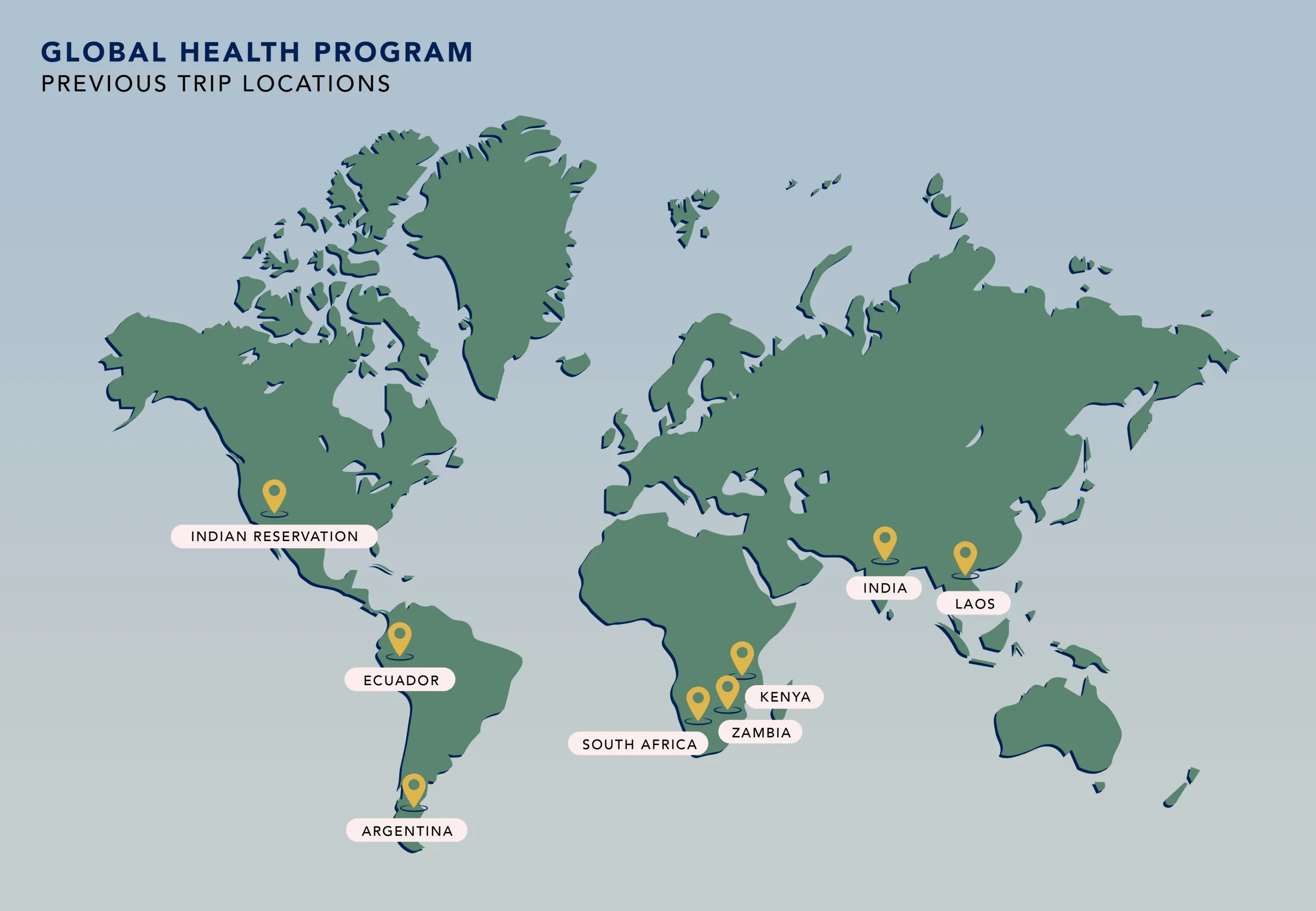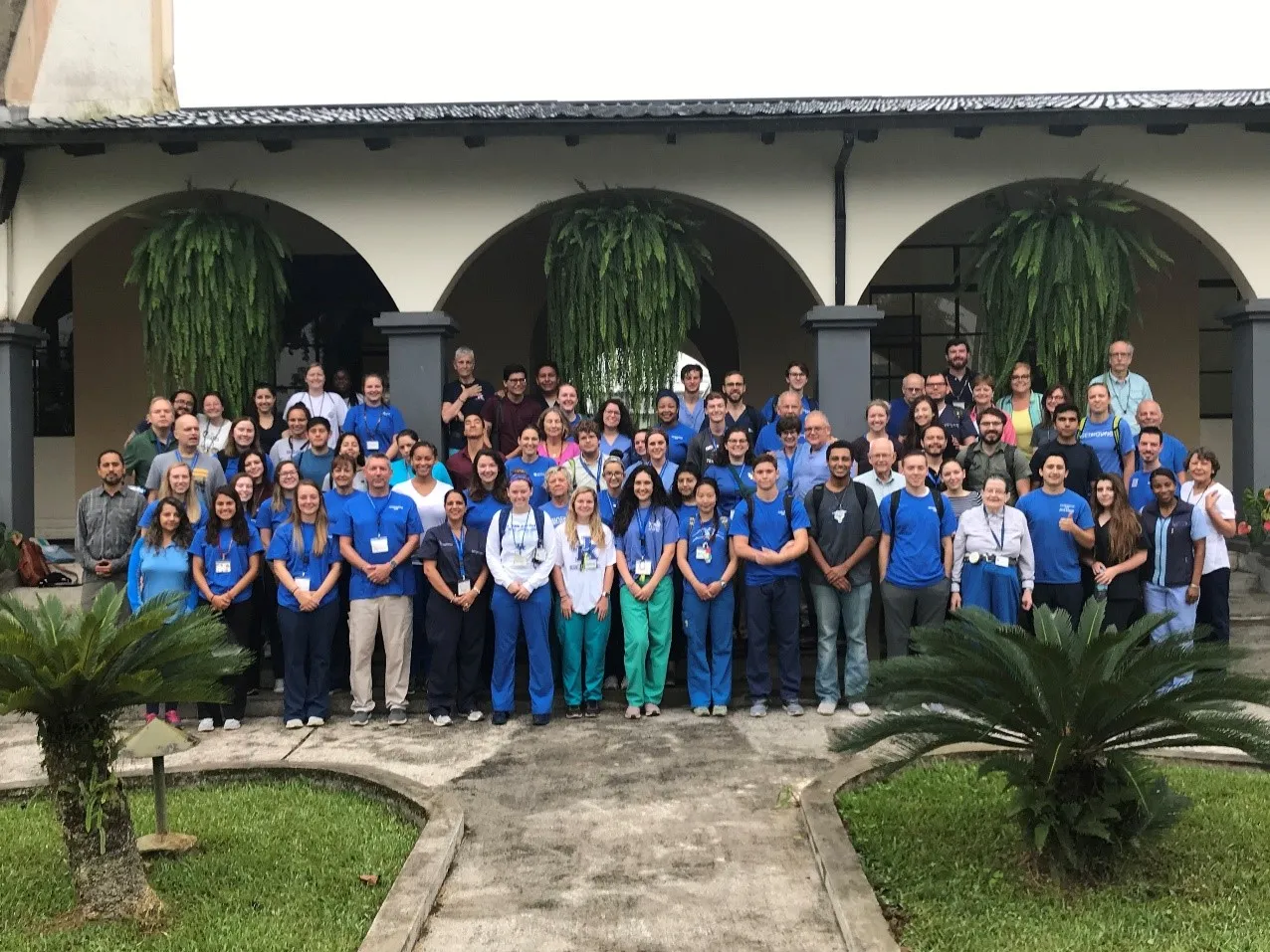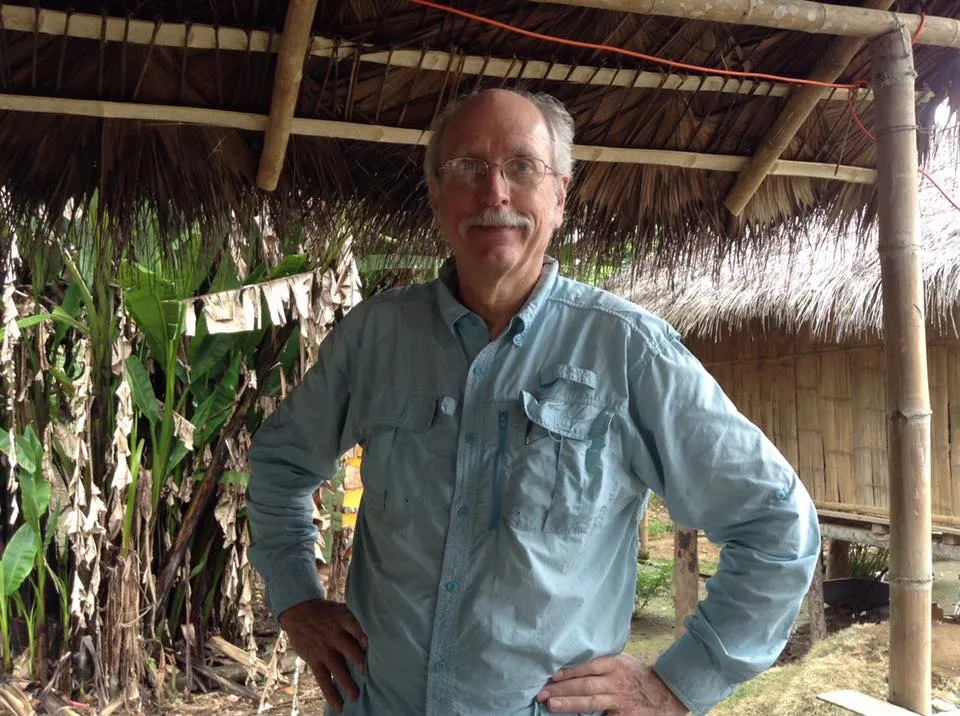Global Health Program
About the Program
The University of Kentucky Global Health Track (GHT) is a unique program designed to train pediatric residents in clinical medicine, healthy policy, service, and research in global health. It provides the opportunity for categorical pediatric and internal medical/pediatric residents to work with underserved populations around the world.
Residents participate in two, nine-day trips to Ecuador and/or India over the first two years of residency. During the final year of residency, a one month trip to a site chosen by the resident and faculty, is required.
The GHT also offers didactic sessions, seminars, and the ability to obtain a Certificate in Global Health Public Health through University of Kentucky. The overall curriculum and conferences are designed to address health policy, public health issues, and social factors influencing health and disease in the global context.
Program Components:
- Financial support for international travel and/or GHT activities.
- Global Health Dinner discussions quarterly.
- Scholarly project in global health.
- Participation in one-week UK Shoulder to Shoulder Global Medical Brigades to Ecuador and India during first and second year for categorical pediatric residents and, first and second/third year for med-peds residents.
- One-month on Global Health Elective rotation during the second year for categorical pediatric residents and in third year for med-peds residents.
- One-month elective in a low/middle income country or local underserved community during the final year of training.
- Opportunity to enroll in the Certificate in Global Health offered through the College of Public Health.

Global Health Elective
This one-month elective rotation, available during the months of March, May, or August, provides the opportunity to gain experience in global health and child immigrant health. The residents rotate locally through Baby Health Service, International Adoption Clinic, UK Travel Clinic, UK-Pediatric HIV Clinic, and Clinica Amiga. During this month, a 1-week medical brigade in Ecuador or India is also included.

International Elective
During their last year of training, residents have the opportunity to do a one-month international global health experience. Residents select their destination where they will be an essential member of the team at the community’s hospital and/or clinic of their choice. Previous trips include Zambia, Argentina, South Africa, Kenya, Laos, and Indian Health Services.
The global health track goal is to provide opportunities anywhere in the world for residents to be able to serve the underprivileged. The program is open to arranging sites to be able to provide a personal growth development opportunity for the resident while providing aid to those in need.
How to Apply
Interested interns can send their applications to their respective program directors after Match Day. After the program director's approval, the applications will be reviewed by the GHT Faculty Committee. Two to three residents will be selected by September.
The application consists of:
- A one to two page essay describing one's interest in global health, global health experiences, and justifications of how global health training is relevant to society, to medicine and to one personally.
- One letter of recommendation from faculty at medical school supporting applicant's commitment to global health.
GHT Faculty Committee:
- Dr. Thomas Young, Program Co-Director, Dr. Michael Anstead, Dr. Suzanna Attia, Dr. Miriam Behar, Dr. Nirmala Desai, Dr. John Stewart
International Medical Brigades

Santo Domingo, Ecuador
The Ecuador trip is under the direction of UK Shoulder to Shoulder Global program, which consists of an interprofessional team of faculty and students from the Colleges of Medicine, Nursing, Pharmacy, Public Health, Health Sciences, and Dentistry. Undergraduate health majors may also join the team of around 40 – 60 participants. The trip is coordinated with our sponsored medical health center in Santo Domingo, as well as joined by faculty and students from Ecuadorian universities. Daily routine consists of setting up clinics in underserved semi-rural and indigenous communities evaluating 700-800 patients throughout the 5 days. The brigades are available during the months of March, May, and August. The goals of the trip are to learn how to coordinate with an inter-professional team, to work in a resource poor environment, to experience unique cultures and learn how to work with them. The trip is wrapped up with a fun day in Mindo.
Mayansandra, India
The India trip is a unique experience in inter professional care for children with special health care needs. Mayasandra, a rural village in southern India, allows the opportunity for residents to work with a unique special needs center that UK Shoulder to Shoulder Global helped to develop. The team includes pediatrics, developmental pediatrics, special education, physical therapy, and communication disorder therapists. The inter-professional team assess children with special health care needs and develop treatment plans. Education sessions are presented to the staff at the special needs center. Currently, up to 100 children are served at this center. Experience may include a visit to the Manipal Hospital for case conferences in Bangalore, India or conference and site visit at local medical school. The trip finishes with a cultural experience, such as the Taj Mahal, Kerala, or other culture sites.

Going on yearly Shoulder to Shoulder trips to Ecuador has been life-changing for me. I am able to interact with colleagues, residents and students in a multidisciplinary environment while providing much-needed medical care to a very underserved comm...
Learn More
For more information about the Global Health Track, please feel free to email Dr. Thomas Young.

Dr. Thomas Young
Program Co-Director
Leader of Medical Brigades to Ecuador and India for the past ten years,
Dr. Young successfully established a permanent medical facility just outside Santo Domingo, Ecuador in 2007.
